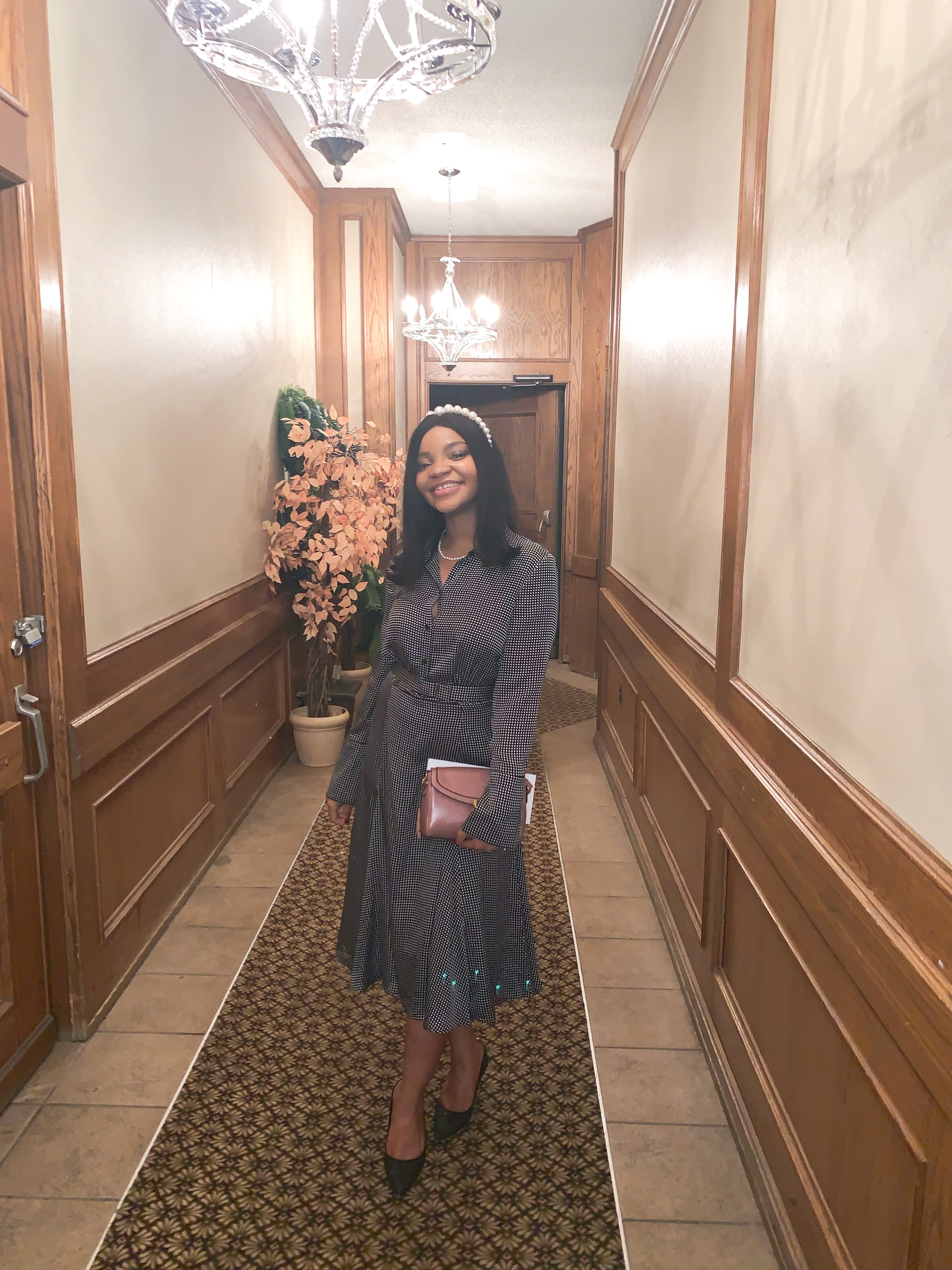Convocation ‘20: Idara Effiom
Erik Einsiedel - 18 November 2020

Psychology student Idara Effiom’s dedication to supporting her fellow students and community is easily seen through the countless organizations she volunteers her time with.
From UAlberta Week of Welcome to JDC West (the largest business competition in Western Canada), from Boyle Street Community Services to the Cross Cancer Institute, UAlberta USchool, Alumni Student Council, and the Undergraduate Psychology Association — those are just some of the many groups Idara has supported while a student at the U of A.
While a student, Idara also pursued the Certificate in International Learning program, completing the co-curricular requirements by her second year.
Originally from Lagos, Nigeria, Idara entered UAlberta as an international student, but wasn’t sure exactly what she wanted to pursue in school. She did know she wanted to get involved, so she moved onto the Arts Leadership Cohort floor in the Lister Hall residence. There began her long list of volunteer credits and internships in support of countless positive community activities.
This included work with Jack.org, a grassroots organization of young leaders destigmatizing and changing the conversation surrounding mental health and mental illness, which fit her passion as a psychology major.
Knowing firsthand the challenges of uprooting your entire life to a new, unfamiliar country, Idara spent some of her time as a volunteer with the International Student Services Peer Program, helping new international students adjust to life in Canada and the U of A. Desiring to work with refugees and immigrants after graduation, Idara now works as the volunteer coordinator for the John Humphrey Centre for Peace & Human Rights.
Through her work, Idara has helped students, immigrants and refugees, and championed solutions for homelessness and poverty, the fight against cancer, and supports for mental health and illness. Learn more about this remarkable Arts graduate who exemplifies the true spirit of Arts, and the value of diverse, community-based learning.
What drew you to the area of your study, and why are you passionate about it?
Before applying to university, I had no prior education in psychology, but I was always interested in the study of behavior and curious about what influences it. We had a moral instruction and behavior class in secondary school that I used to look forward to.
What drew me to psychology was its diversity, and how much of it is an intersection of applied, educational, and theoretical sciences. It seemed really interesting and practical, so when it was time to choose a major, I took a chance and went for it!
What is the most remarkable thing you learned while you were a student?
The most remarkable thing I learned is the importance of building a network. It’s easy as a student to neglect other aspects of the university experience and focus solely on academics. In my time as a student, I learned (and tried) to balance academics with extracurricular activities. Joining student clubs, associations, and participating in the Arts Work Experience co-op helped me strengthen my networking skills and make life-long friends!
Did you face any significant challenges, and if so, how did you deal with them?
Every student faces challenges while in university — it’s a part of the process! Many of my significant challenges were financial. From the second year, I became mostly financially responsible for myself. That is very challenging as an international student paying the fees.
As I wanted to make the most of my time at university, I included two certificates to my degree: the Certificate in International Learning through International Student Services and the Certificate in Interdisciplinary Leadership through the Peter Lougheed Leadership College. These certificates came at an extra cost, and as a result, I had to look for funding resources in addition to working to complete my degree.
I think these challenges made me more resourceful as I had to apply for a lot of funding from the government and the university. I wrote so many essays for scholarships and awards, it’s almost like second nature now!
How did you manage the challenges of navigating student life under COVID-19 restrictions and remote learning?
The general anxiety and uncertainty I experienced at that time was challenging. However, managing those stresses was made easier by how supportive most of my professors and colleagues were. Most resources available in person on campus were delivered remotely, and that helped a lot. In fact, there was a master thread of available tutors posted on one of the U of A Facebook pages that was extremely helpful (especially for me as I was taking a full course load of classes I had avoided earlier in my degree).
What piece of advice do you wish someone had given you when you started?
I wish someone had told me the importance of asking questions in class. A lot of students avoid asking questions in class because they feel like they will be able to catch up on their own afterward. While this may work, I found in my last two years that it was a lot simpler and more effective to ask questions for clarification in the moment.
What is next for you?
To be honest, I am not entirely sure. I currently work with a Human Rights organization in Edmonton, and it’s work that I love. For now, I hope to continue to work to serve the Edmonton community, and especially to continue working with the vulnerable populations. As a medium-term plan, I would like to go back to school for a Master’s degree in counseling psychology.